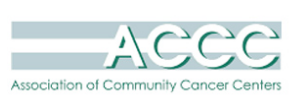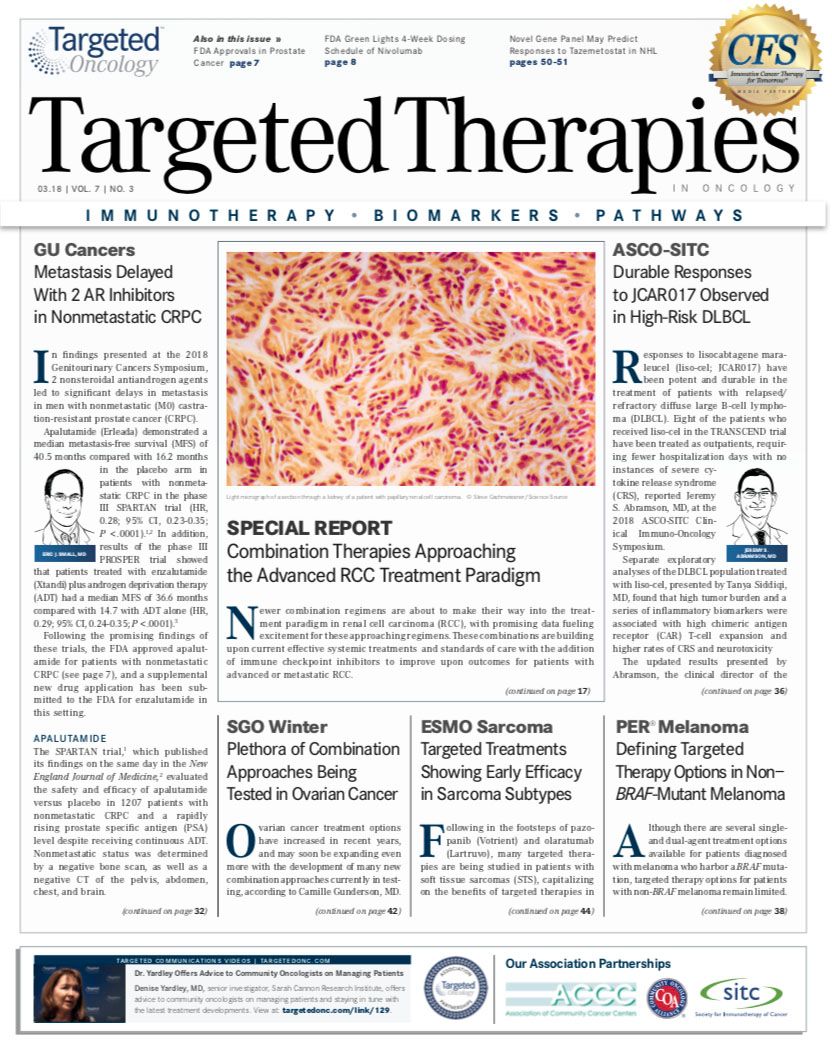Breaking Down the Barriers to Immunotherapy in the Community
Although immuno-oncology is increasingly gaining strength within the community setting, familiarity with ever-changing indications, and patient and nonspecialist education are persistent issues for community oncology providers. These are a few of the many barriers currently standing in the way, based on interviews, focus groups, and surveys from 2017.

A number of barriers still stand in the way of the uptake of immuno-oncology (I-O) in the community setting, according to a recent white paper from the Association of Community Cancer Centers (ACCC).1Although I-O is increasingly gaining strength within the community setting, familiarity with ever-changing indications for I-O, and patient and nonspecialist education are persistent issues for community oncology providers.
ACCC conducted interviews, focus groups, and surveys throughout 2017. Several of the ongoing challenges associated with immunotherapy understanding and its use for community oncology providers and nononcology specialists were identified.
“As I-O is increasingly delivered in community cancer programs, familiarity with expanding indications for I-O and patient education are persistent challenges for community oncology providers,” the authors wrote in the white paper.
One such survey, the 2017 Trending Now in Cancer Care survey, which featured responses from program administrators and providers from over 200 cancer centers, noted that 96% offer immunotherapy treatments.2Of these, 40% reported feeling varying degrees of discomfort with managing immune-related adverse events (irAEs).
Concern over management of irAEs is echoing throughout the oncology field.
Although emerging guidelines have helped with the management of these events in patients receiving immunotherapy, there is an urgent need for education for patients and nononcology specialists.
ACCC offered a number of initiatives and programs during 2017, including the Visiting Experts program, Case Studies in Immuno-Oncology program, and Non-Oncology Specialists Alliance focus group, all designed to educate members and increase the understanding of immunotherapy. As a result of the Non-Oncology Specialists Alliance focus group, for example, participants identified that hospitals and emergency department staff have the greatest need for I-O education in order to understand how to treat patients who present with irAEs.
“The recognition and management of immune-related adverse events has emerged as a topic in urgent need of education, support, and resources for not only members of the oncology multidisciplinary team, but also for nononcology specialists. It is becoming increasingly clear that irAE management relies heavily on building robust relationships with, and establishing effective lines of communication between, oncology providers and nononcology specialists,” the authors wrote.
ACCC established a number of needs following these discussions, including that formal courses from I-O specialists should be given to hospital and emergency department staff, nurse navigators, pharmacists, and more to increase their understanding of immunotherapy.
Many community cancer centers are also developing strategies to manage irAEs across the oncology care team. These included standard practice guidelines for irAE management, same-day care models by means of symptom management workspace, and a continuous effort to educate providers, patients, and nonclinical staff.
An example of an I-O program that has successfully handled these challenges, the University of Colorado Cancer Center suggested that all patients receiving immunotherapy should carry a card in their wallet letting non-oncology providers know of their ongoing treatment. ACCC also urged for more patient-directed materials on irAEs, as patient education is key in the management of these events.
Responders of a Policy, Access, and Value survey also reported that many of their cancer programs (57%) struggle with coverage reimbursement for immunotherapy treatments. This was viewed by 65% of participants as being a consequence of the difficulty that payers have in keeping up with newer FDA approvals and guideline-recommended agents. Seventy-five percent also reported that they were unfamiliar with value-based payment models and 50% found it difficult to implement full-time clinician access as part of the Oncology Care Model. Only 23% said that their program had a system in place to manage and diagnose irAEs.
Greater access to clinical trials in community hospitals and clinics would also help to ease access to newer treatments for patients. A strategy is needed to increase access to these trials in the community. Looking to the year ahead, the white paper noted that future treatment decisions will increasingly be informed by biomarkers to determine which patients should and should not receive treatment with immunotherapy. Oncologists and staff should prepare themselves for moving toward a more biomarker-driven model, ACCC suggested.
References:
- Immuno-oncology: transforming the delivery of cancer care in the community. Informz website. informz.net/ACCC/data/images/Attachments/2017%20IO%20 White%20Paper.pdf. Published January 31, 2018. Accessed February 23, 2018.
- Highlights from the 2017 Trending Now in Cancer Care Survey. ACCC website. accc-cancer.org/docs/documents/surveys/trends-in-cancer-programs-2017.pdf? sfvrsn=6587a030_0. Accessed

Survivorship Care Promotes Evidence-Based Approaches for Quality of Life and Beyond
March 21st 2025Frank J. Penedo, PhD, explains the challenges of survivorship care for patients with cancer and how he implements programs to support patients’ emotional, physical, and practical needs.
Read More